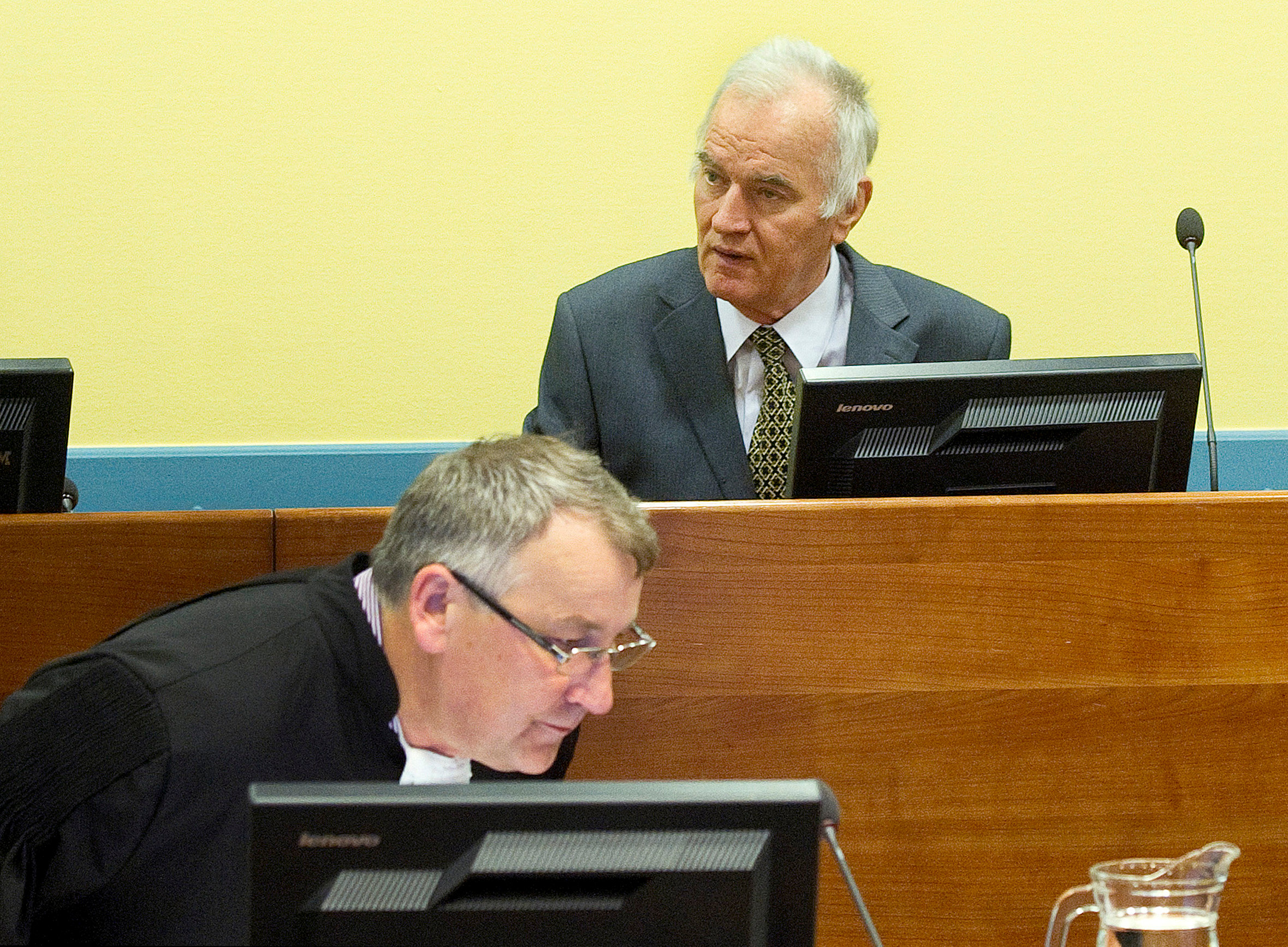
AMSTERDAM (Reuters) – Ratko Mladic’s lawyers told judges on Friday that Bosnia’s “fanatical” Muslim leaders had been preparing “jihad” long before the Bosnian Serb general, on trial in The Hague for genocide, ever set foot in the country in uniform.
Mladic, 74, once an officer in the federal Yugoslav army, led Bosnian Serb forces in a three-year campaign to carve an ethnically pure Serb state out of Bosnia. The campaign reached its nadir with the slaughter of thousands of Muslims in Srebrenica.
Summing up at the end of Mladic’s four-year trial at the International Criminal Tribunal for the former Yugoslavia, defense lawyer Branko Lukic said Mladic had been defending his country and its people from “ethnic and religious fanaticism.”
“The Bosnian Muslim Party of Democratic Action (SDA) was preparing for war,” Lukic said.
He quoted from an “Islamic declaration” by Bosnia’s wartime leader, Alija Izetbegovic, which stated that “there can be no peace between the Islamic faith and non-Islamic social and political institutions”.
Prosecutors on Wednesday demanded life imprisonment for Mladic for leading Bosnian Serb forces as they encircled the U.N.-designated safe haven of Srebrenica and then murdered some 8,000 of its male Muslim inhabitants, burying them in mass graves.

Former Bosnian Serb army commander Ratko Mladic (rear) attends his trial at the International Criminal Tribunal for the former Yugoslavia (ICTY) at The Hague May 16, 2012. REUTERS/Toussaint Kluiters/File photo
But Lukic told the court that all parties, not only the Bosnian Serbs, were responsible for the violence in Bosnia — not least Arab “mujahideen” fighters who had come to fight alongside their Bosnian co-religionists.
“To believe the prosecution’s vision of the case, one has to ignore the presence and activities of an opposing armed opponent,” he said, as Mladic, described by another defense lawyer as a popular “soldier’s soldier”, listened from the dock.
“Mladic is here today because he is a Serb and dared to stand up against Alija Izetbegovic’s jihad,” or Islamic holy war, asserting the Bosnian Muslim leader had enjoyed the covert backing of NATO and Western powers.
The Srebrenica massacre, Europe’s worst since World War Two, triggered NATO air strikes that ultimately ended the three-year Bosnian war, part of the break-up of Yugoslavia in a series of wars that killed 130,000 people and lasted for most of the 1990s [nL5N1E2450].
Mladic is charged with two counts of genocide in connection with the war. His old ally, the Bosnian Serbs’ political leader Radovan Karadzic, was convicted of a single count of genocide this year and sentenced to 40 years in prison.
A verdict and, in the event of a conviction, a sentence are expected next year.
(Reporting By Thomas Escritt; Editing by Larry King)